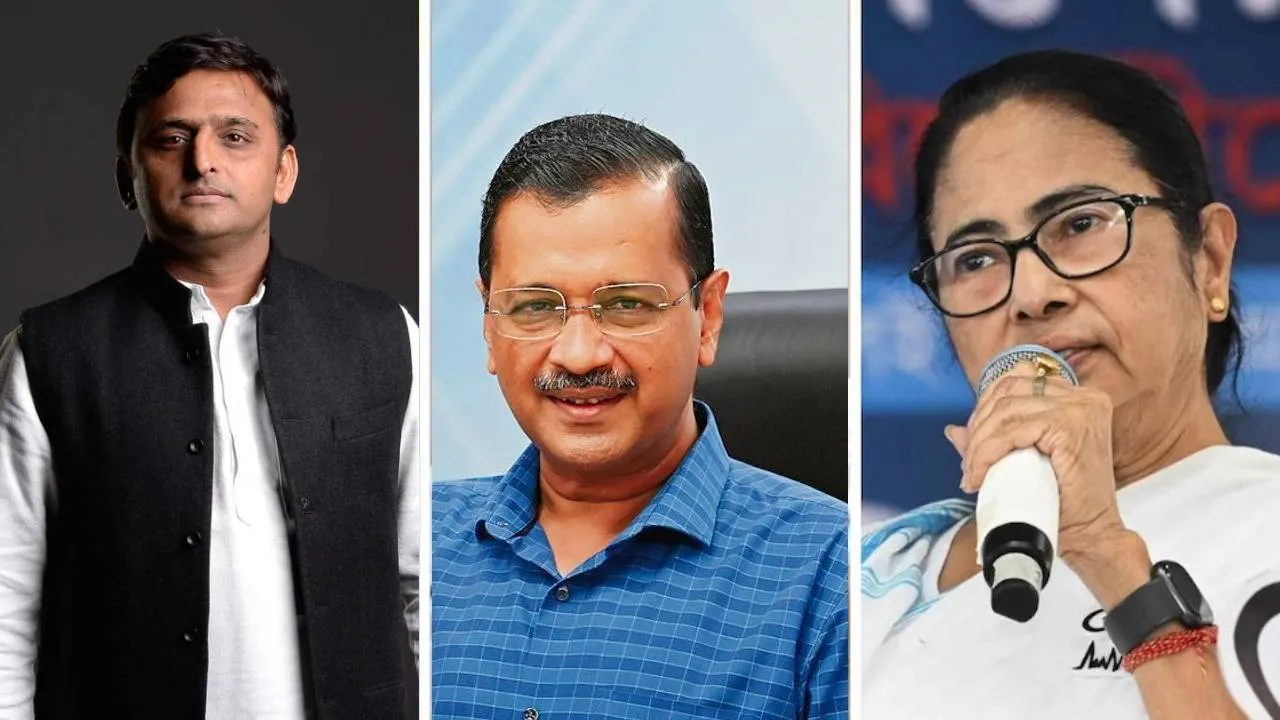While reiterating the significance of personal affidavits of parties and their ensuing probative value in smooth administration of justice, the Orissa High Court in a latest, learned, laudable and landmark judgment titled Thabir Sagar vs State of Odisha in BLAPL No. 748 of 2021 whose date of hearing was June 8, 2021 and was delivered on June 18, 2021 has held in no uncertain terms that the practice of Advocate’s clerks filing affidavits on behalf of parties is unacceptable. Such a practice is in gross violation of Rule 26 of the Orissa High Court Rules. It has therefore rightly directed its Registry to ensure that steps are taken forthwith to stop the practice of accepting such affidavits which form part of petitions/applications under the original jurisdiction of the Court.
To start with, a Single Judge Bench of Justice SK Panigrahi of Orissa High Court who authored this leading judgment sets the ball rolling by first and foremost observing in para 1 that, “The petitioner has filed the instant application under Section 439 of Cr. P.C seeking bail in connection with G.R. Case No.951 of 2020 pending in the Court of the learned SDJM, Koraput corresponding to Koraput Sadar P.S. Case No.120 of 2020. The petitioner is accused in connection with the alleged commission of offence punishable under Section 395 of the IPC.”
While dwelling on FIR and arrest made, the Bench then puts forth in para 2 that, “FIR was registered against unknown persons in FIR No.120 of 2020 before Koraput Sadar P.S. Two persons, namely, Dhananjay Nayak and Surendra Sagar, were arrested in connection with the case, during the course of investigation. It is submitted that, thereafter, the petitioner was arrested and taken into custody on 13.11.2020 on the basis of the statement of the abovementioned accused.”
While mentioning about the petitioner’s prayer, the Bench then brings out in para 3 that, “Previous bail applications moved by the petitioner before the learned SDJM, Koraput as well as the learned Additional Sessions Judge, Koraput stood rejected mainly on the ground that some cash has been recovered from some of the co-accused and some of the co-accused are still at large. The learned Judge is of the view that if the petitioner is enlarged on bail, it would hamper the investigation. Aggrieved by the above order, the petitioner has approached this Court.”
What really perplexes the Bench is then stated in para 4 that, “Strangely, we find that the affidavit accompanying the petition has been filed by one Tophan Pradhan who is the advocate’s clerk-incharge. Curiously enough, the advocate’s clerk has sworn that he is looking after the case on behalf of the petitioner. This Court fails to understand as to how an advocate’s clerk can swear an affidavit claiming to be “looking after” a case before this Court in gross violation of the Orissa High Court Rules.”
Needless to say, it is of immense significance to state that the Bench then observes in para 5 that, “An affidavit is an affirmation of truth. It is a willing declaration made in writing, signed by a deponent and accompanied by an oath to prove the veracity of its contents. In India, the law on affidavits is governed by Order XIX of the Code of Civil Procedure, 1908. Further, every High Court, in furtherance of its own requirements from an affidavit, has framed its own Rules. The very essence of an affidavit lies in the fact that the person deposing the same, affirms on oath that all the representations made in the affidavit are true and correct to the best of his knowledge. While it is permissible that if the knowledge is not personal, it can be gathered from other sources (provided details of the sources are mentioned), it is in flagrant violation of rule of law to execute an affidavit without having any knowledge of the averments made therein. Courts rely heavily on affidavits and their ensuing probative value for the smooth administration of justice. Noting the importance of an Affidavit, courts have strongly deprecated the practice of affidavits being sworn by someone who has no knowledge of the facts or who has no means of achieving said knowledge.”
Alarmingly, the Bench then notes with concern in para 6 that, “Recently, it is noticed that there has been a growing trend of advocates’ clerks signing affidavit for applications/petitions/counter affidavits etc. imperviously and oblivious of the contents therein. A Vakalatnama to represent a party in Court is held by an Advocate and the brief is entrusted to the Advocate. The Advocate-client relationship is quite clearly accepted as a fiduciary relationship and the communication is privileged and confidential. It is strictly between the client and the Advocate. Neither the brief nor is the permission to represent a party to be shared by the Advocate with his clerk. An advocate’s clerk signing an affidavit instead of the party himself or a person designated/authorised by the party or the Advocate holding the Vakalatnama is unacceptable and such attempts to subvert the law is impermissible. An advocate’s clerk as defined in The Orissa Advocates’ Clerks Welfare Fund Act, 2008 is as under:
“2 – b) “Advocates’ clerk” means a clerk employed by an Advocate and recognized by such authority and in such manner as may be prescribed and who is a member of an Advocates’ Clerks’ Association;”
An advocate’s clerk, no doubt, renders invaluable assistance in the advocate’s office in various day to day matters including filing, effecting service, coordination etc. Nothing entitles or enables an advocate’s clerk to appear before a Court on behalf of an advocate. Similarly, an advocate’s clerk cannot swear affidavits in a perfunctory manner for petitions/applications on behalf of a party before the court, especially those which include facts beyond his personal knowledge or where he cannot completely explain how he derived knowledge of the facts he has affirmed.
The Courts have always come down heavily on the practice by initiating contempt proceedings where they have discovered that an advocate’s clerk has falsely signed an affidavit. The most recent instance of the same being the order passed by a coordinate bench of this Court, wherein a show cause contempt notice was served on an advocate’s clerk who had sworn an affidavit in a bail application of an accused on the basis of forged medical certificates.”
To put things in perspective, the Bench then while dwelling on affidavit and mentioning the relevant provisions observes in para 7 that, “The relevance of Affidavit is ingrained in both the procedural codes in India. The word “Affidavit” has its roots from a Latin word which literally means to “pledge one’s faith.” It is a written statement from an individual which is sworn to be true and the contents of an affidavit reflect the personal knowledge of the individual making the statement. The Civil Procedure Code deals with the issue in the following terms:
Civil Procedure Code, 1908 – Order XIX – Affidavits:
“3. Matters to which affidavits shall be confined. – (1) Affidavits shall be confined to such facts as the deponent is able of his own knowledge to prove, except on interlocutory applications, on which statements of his belief may be admitted:
Provided that the grounds thereof are stated.
(2) The costs of every affidavit which shall unnecessarily set forth matters of hear say or argumentative matter, or copies of or extracts from document, shall (unless the Court otherwise directs) be paid by the party filing the same.”
Similarly, the Orissa High Court Rules, Chapter VI – General Rules regarding Applications and Affidavits provides as follows:
“4. Every petition and every affidavit shall be entitled “In High Court of Orissa” and shall be:
(i) neatly typed on foolscap thick white paper with a margin of five centimetres and shall contain approximately twenty-four lines in each full page and only one side of the paper shall be used;
(ii) couched in proper language; and
(iii) signed and dated either by the petitioner or declarant or his advocate.
Provided that in case where the petition is filed from the judgment or order of a Subordinate Court as in the case of Civil Revision, Criminal Revision and Civil Review and where the facts are borne out by the records of the Court, an affidavit signed and dated by the Advocate’s clerk may be accepted and the parties’ affidavit dispensed with.
(iv) presented either by the petitioner or declarant or his recognised agent or his Advocate or some person appointed in writing in each case by such Advocate to present the same.
14. When the petitioner in any petition or the declarant in any affidavit speaks to any fact within his knowledge he must do so directly and positively using the words I affirm (or make oath) and say.
15. When in an affidavit on an interlocutory application the declarant makes a statement of his belief he shall, if the facts are ascertained-
(i) from another person, give such details of such person as are required by Rule 11;
(ii) from a document or copy of a document, state the source from which it was procured and shall state his belief as to the truth of such fact.
26. No petition or affidavit shall be read or used in the High Court which does not comply with the provisions of this Chapter.””
While underscoring the importance of affidavits and citing the relevant case laws, the Bench then states in para 7 that, “The relevance of Affidavit is ingrained in both the procedural codes in India. The word “Affidavit” has its roots from a Latin word which literally means to “pledge one’s faith.” It is a written statement from an individual which is sworn to be true and the contents of an affidavit reflect the personal knowledge of the individual making the statement. The Civil Procedure Code deals with the issue in the following terms:
Civil Procedure Code, 1908 – Order XIX – Affidavits:
“3. Matters to which affidavits shall be confined. – (1) Affidavits shall be confined to such facts as the deponent is able of his own knowledge to prove, except on interlocutory applications, on which statements of his belief may be admitted:
Provided that the grounds thereof are stated.
(2) The costs of every affidavit which shall unnecessarily set forth matters of hear say or argumentative matter, or copies of or extracts from document, shall (unless the Court otherwise directs) be paid by the party filing the same.”
Similarly, the Orissa High Court Rules, Chapter VI – General Rules regarding Applications and Affidavits provides as follows:
“4. Every petition and every affidavit shall be entitled “In High Court of Orissa” and shall be:
(i) neatly typed on foolscap thick white paper with a margin of five centimetres and shall contain approximately twenty-four lines in each full page and only one side of the paper shall be used;
(ii) couched in proper language; and
(iii signed and dated either by the petitioner or declarant or his advocate
Provided that in case where the petition is filed from the judgment or order of a Subordinate Court as in the case of Civil Revision, Criminal Revision and Civil Review and where the facts are borne out by the records of the Court, an affidavit signed and dated by the Advocate’s clerk may be accepted and the parties’ affidavit dispensed with.
(iv) presented either by the petitioner or declarant or his recognised agent or his Advocate or some person appointed in writing in each case by such Advocate to present the same.
14. When the petitioner in any petition or the declarant in any affidavit speaks to any fact within his knowledge he must do so directly and positively using the words I affirm (or make oath) and say.
15. When in an affidavit on an interlocutory application the declarant makes a statement of his belief he shall, if the facts are ascertained-
(i) from another person, give such details of such person as are required by Rule 11;
(ii) from a document or copy of a document, state the source from which it was procured and shall state his belief as to the truth of such fact.
26. No petition or affidavit shall be read or used in the High Court which does not comply with the provisions of this Chapter.””
While citing more relevant case laws to drive home the point, the Bench then envisages in para 8 that, “The importance of affidavits, strictly conforming to the requirements laid out in Order XIX Rule 3 of the Civil Procedure Code, 1908 has been discussed as far back as in 2010 in Padmabati Dasi v. Rasik Lal Dhar (1910) ILR 37 Cal 259, wherein the Hon’ble High Court of Calcutta held as under:
“…We desire to impress on those who propose to rely on affidavits that, in future, the provisions of Order XIX, Rule 3, must be strictly observed, and every affidavit should clearly express how much is a statement of the deponent’s knowledge and how much is a statement of his belief, and the grounds of belief must be stated with sufficient particularity to enable the Court to judge whether it would be sage to act on the deponent’s belief….”
The Hon’ble Supreme Court of India confirmed the aforesaid position in State of Bombay v. Purushottam Jog Naik AIR 1952 SC 317, wherein a Constitution Bench, while considering the importance of verification of an affidavit, among others, held as under:
“…We wish, however, to observe that the verification of the affidavits produced here is defective. The body of the affidavit discloses that certain matters were known to the Secretary who made the affidavit personally. The verification however states that everything was true to the best of his information and belief. We point this out as slipshod verifications of this type might well in a given case lead to a rejection of the affidavit. Verifications should invariably be modelled on the lines of Order 19 Rule 3 of the Civil Procedure Code, whether the Code applies in terms or not. And when the matter deposed to is not based on personal knowledge the sources of information should be clearly disclosed…”
Further, in Barium Chemicals Ltd. v. Company Law Board 1966 (Suppl) SCR 311, the Hon’ble Supreme Court has posited that where evidence was adduced by affidavit, such an affidavit could be verified either on knowledge or from sources but the basis of such knowledge or source of information must be clearly stated. Further, more recently in Amar Singh v. Union of India (2011) 7 SCC 69, the Hon’ble Supreme Court struck a note of caution as under;
“64. This Court wants to make one thing clear i.e. perfunctory and slipshod affidavits which are not consistent either with Order 19 Rule 3 CPC or with Order 11 Rules 5 and 13 of the Supreme Court Rules should not be entertained by this Court. In fact three Constitution Bench judgments of this Court in Purushottam Jog Naik [AIR 1952 SC 317] , Barium Chemicals Ltd.[AIR 1967 SC 295] and A.K.K. Nambiar [(1969) 3 SCC 864] and in several other judgments pointed out the importance of filing affidavits following the discipline of the provision in the Code and the said Rules.”
It is trite law that an affidavit shall always be confined to such facts as the deponent has his own knowledge to prove, except on interlocutory applications, on whose statements of his belief may be admitted, provided that the grounds thereof are stated.”
Quite pertinently, the Bench then hastens to add in para 9 that, “Interestingly, the question of whether an advocate’s clerk is empowered to swear an affidavit was thoroughly discussed in the leading case of Smt. Savitramma v. Cicil Naronha and Anr. 1988 Supp SCC 655, wherein the Hon’ble Supreme Court held that;
“2. …In the case of statements based on information the deponent shall disclose the source of his information. Similar provisions are contained in Order 19, Rule 3 of the Code of Civil Procedure. Affidavit is a mode of placing evidence before the Court. A party may prove a fact or facts by means of affidavit before this Court but such affidavit should be in accordance with Order XI, Rules 5 and 13 of the Supreme Court Rules. The purpose underlying Rules 5 and 13 of Order XI of the Supreme Court Rules is to enable the Court to find out as to whether it would be safe to act on such evidence and to enable the court to know as to what facts are based in the affidavit on the basis of personal knowledge, information and belief as this is relevant for the purpose of appreciating the evidence placed before the Court, in the form of affidavit…If the statement of facts is based on information the source of information must be disclosed in the affidavit.”
“5. The matter does not rest here. The affidavit filed on behalf of the accused in reply to the contempt petition is shocking. The office clerk of the advocate for the accused has filed affidavit on behalf of the accused in reply to the contempt petition. The deponent of the counter-affidavit has verified the affidavit saying that the statements of the case of the accused are true and correct which are based on the records maintained in the office of the advocate and based on the instructions received from the clients. Such an affidavit is wholly improper and inadmissible in evidence and liable to be rejected. What reliance can be placed on an affidavit filed by a person sitting at Delhi and that too a clerk of an advocate practising at Delhi giving reply to the allegations and facts and circumstances existing at Karnataka on the basis of records maintained in advocate’s office at Delhi. The practice of clerks of advocates filing affidavits without a proper verification should be deprecated. As matters before the Apex Court are determined on the basis of the statements contained in affidavits it is the duty of the litigants and the lawyers to file affidavits in accordance with the rules to assist the court in administering justice.”
Furthermore, in Someswar Gogoi v. State of Assam 1988 SCC OnLine Gau 10, the Hon’ble High Court of Gauhati held as under;
“We are of the view that the best person to swear an affidavit is undoubtedly the petitioner himself, and normally an affidavit should be verified by him. In case the petitioner be ailing or infirm he can definitely depute somebody else who is to full know of things whose affidavits would satisfy the mind of the Court about the correctness of the averments; made in the petition. It is too well-known that when a writ petition is filed either the petitioner or somebody being in know of things comes to brief the Counsel. In such a situation it should not be difficult to get the required affidavit verified by such a person. If an Advocate’s clerk has to verify the affidavit, all that he can say is that what has been stated by him relating to the facts of the case is true to the information derived by him either from the petitioner or some tadbir karak. Now, if the petitioner or tadbir karak had come to brief the counsel, we do not find any reason as to why such I a person should not be asked to verify the affidavit. It may be pointed out that provision of Order 19 Rule 3 requires giving of source off information when the fact is not true to the knowledge of the deponent. In such a situation if the advocate’s clerk has merely to say what has been stated by him is true to the information supplied by the petitioner, as he shall have to say unless he has direct knowledge of the facts, the Court would not know whether the information supplied by the petitioner was true to his knowledge, or he himself in turn has derived the same from some other source. An affidavit of an Advocate’s clerk in such a situation cannot inspire full confidence in the mind of the Court about the correctness of the averments made in the petition.”
Please read concluding on link4din.com/guardians-numeric-wisdom
It would be apposite to note the following observations made by the High Court of Madras in Tamizhaga Panchalai Thozhilalar Sangam v. The Presiding Officer and Ors 2012 SCC OnLine Mad 3105., :
“23. Though under the Vakalat, an Advocate is authorised to appear and defend the proceeding, has the duty to represent the proceedings, a Party to the lis cannot fix responsibility on the clerk. The brief is not in held in trust, by the advocate’s clerk. Neither the Civil Rules of Practice nor the rules framed by the High Court to regulate the registration of recognized clerk and communicated to the lower courts, enable the pleader’s clerk to file an affidavit on behalf of the litigant. Where the Advocate’s clerk, has committed a bona fide or inadvertent mistake or there is an accidental omission, or typographical error in a pleading by the typist engaged by the pleader in his office, it is the litigant or the pleader, to file an affidavit, explaining the reasons for the said mistake, on the basis of his personal knowledge, or information, as to the facts pleaded. There cannot be any extension of the vakalat given to an Advocate, to a Clerk or to a typist, to any other employee, in the Pleader’s office, to act on behalf of a party. Authorisation given under Vakalat cannot be extended to an Advocate Clerk for the purpose of swearing an affidavit.”
Be it noted, the Bench then minces no words to state in para 10 that, “An affidavit is an accepted mode of placing evidence before the Court. A party uses an affidavit to prove a fact or facts before the Court. Perforce, such an affidavit should always be in accordance with the prescribed Rules. The purpose underlying the Rules is to enable the Court to find out as to whether it would be safe to act on such evidence and to enable the court to know as to what facts are based in the affidavit on the basis of personal knowledge, information and belief. This is relevant for the purpose of appreciating the evidence placed before the Court, in the form of affidavit, in the right perspective. It is for this very reason that a party swearing an Affidavit must disclose as to what facts are true to his personal knowledge, information or belief. If the statement of fact is based on information, such source of information must be disclosed in the affidavit. An affidavit which does not comply with these provisions has no probative value and it is liable to be rejected. An advocate’s clerk who has no personal knowledge of the facts of the case, nor is independently empowered to swear such an affidavit is not permitted in law to file a token and mechanical affidavit. When the Rules clearly lay out the form, content and degree of knowledge required to be included in an affidavit, to ensure the reliability and veracity of the same, any affidavit which is not in strict consonance with the same has to be discarded.”
As is quite ostensible, the Bench then states in para 11 that, “It is clear that Rule 4(iii) of the Orissa High Court Rules contemplates that in cases where this court exercises appellate powers, as in cases involving civil or criminal revision as well as cases where the Court is exercising its power of Review, a specific exception has been made wherein the affidavit by the parties may be dispensed with and the accompanying affidavit can be filed by an advocate’s clerk. This specific exception was made, perhaps, keeping in mind that in certain cases, as aforementioned, the records of the case are already present in the records of the Court. In such a situation, the advocate’s clerk is not required to furnish any additional new information or put forth any original fact. That is the only extent to which such an exception may be made. Since the Rules made by different High Courts have to be in conformity with Order XIX of the CPC, which broadly deals with affidavits, this exception envisaged in the Orissa High Court Rules is restricted in its use.
In all cases arising out of the original jurisdiction of the Court, including any other matter which does not fall under the categories expressly provided for in the proviso to Rule 4(iii), the question of an affidavit being filed by an advocate’s clerk is impermissible and perverse. When a rule provides for an exception, it has to be strictly construed and cannot be diluted.”
What’s more, the Bench then while citing the relevant state rules in para 12 elucidates that, “Furthermore, a perusal of Rule 14 and Rule 15 of the Orissa High Court Rules which lays down how an affidavit is to be framed by the declarant, the Court while accepting the affidavit of a declarant casts a strict responsibility on them to make certain disclosures to ensure that the facts, statements, etc. contained in the affidavit are based on personal knowledge or on belief which can be traced back to its sources. Even then, the affidavit will be subject to Rule 26. Given the fact that a clerk has no means of having any personal knowledge or belief with respect to the facts in an original petition, the question of him being permitted to file an affidavit does not arise. It has rightly been left out in the Rules which specify that only the petitioner/ declarant or an advocate can sign such an affidavit.”
Without mincing any words, the Bench then observes in para 13 that, “This practice of advocate’s clerks filing affidavits is unacceptable. The Registry is directed to ensure that steps are taken forthwith to stop the practice of accepting such affidavits which form part of petitions/applications under the original jurisdiction of the Court, made in gross violation of Rule 26 of the Orissa High Court Rules.”
As a corollary, the Bench then holds in para 14 that, “A conjoint reading of the above-mentioned Rules thereby lead this Court to an irresistible conclusion that:
i. An affidavit must strictly be restricted to the facts that the deponent is able to prove are within his own knowledge;
ii. In certain situations, i.e., in interlocutory applications, if the deponent chooses to rely on other sources on which he bases his belief, the details of such person, document, etc. must clearly be stated and it must be explained how the information was procured;
iii. An affidavit may be presented either by the petitioner, or the declarant or the Pairokar, or advocate or such person as duly appointed in writing only;
iv. If a petition is filed from the judgment or order of a Subordinate Court, where the facts are borne out by the records of the Court, an affidavit signed and dated by the Advocate’s Clerk may be accepted as per Rules; and
v. Any affidavit not in complete compliance with the provisions shall not be relied upon or used.”
Finally, the Bench then holds in the last para 15 that, “In view of the above, this Bail Application being defective, is accordingly dismissed. It is further made clear that any of the observations made in this judgment shall not come in the way of a fair trial of the case, nor shall the trial Court be influenced by these observations. The petitioner can file a fresh Bail Application, if he is so advised.”
Of course, what this brief, brilliant and balanced judgment by Justice SK Panigrahi of the Orissa High Court makes manifestly clear is that advocates clerks cannot file affidavits on behalf of parties on original side as it clearly violates Rule 26 of the Orissa High Court Rules. It has therefore very rightly directed its Registry to ensure that steps are taken forthwith to stop the despicable practice of accepting such affidavits which form part of petitions/applications under the original jurisdiction of the Court. Justice SK Panigrahi very rightly affirmed that, “Given the fact that a clerk has no means of having any personal knowledge or belief with respect to the facts in an original petition, the question of him being permitted to file an affidavit does not arise….An advocate’s clerk cannot swear affidavits in a perfunctory manner for petitions/applications on behalf of a party before the court especially those which include facts beyond his personal knowledge or where he cannot completely explain how he derived knowledge of the facts he has affirmed.”






















